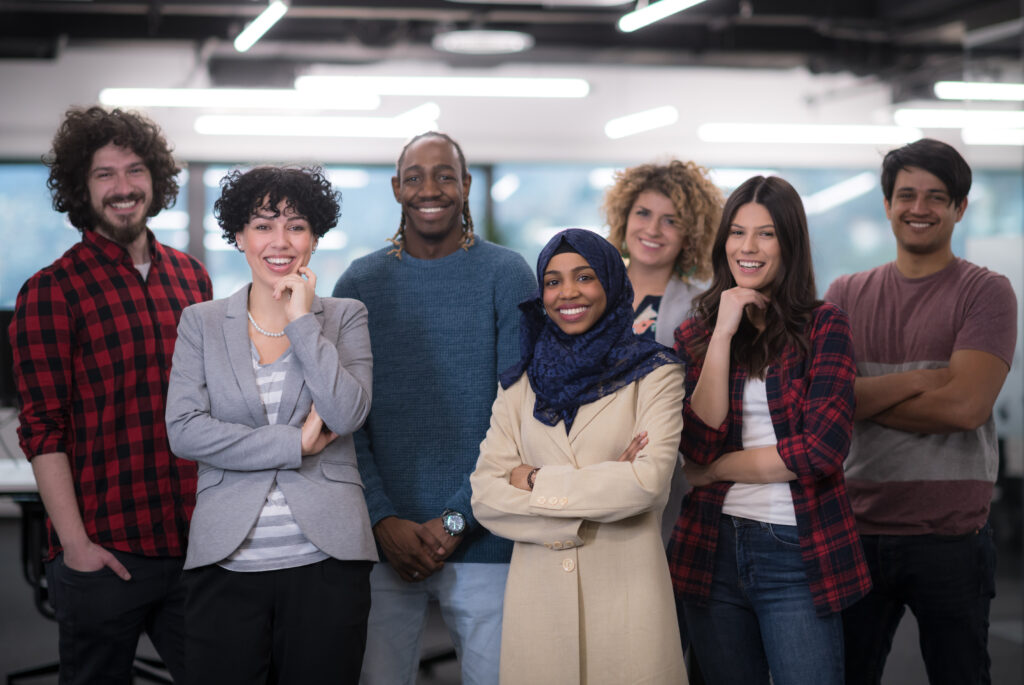Takeaways from the Elevate Team Impact Roundtable with Janine Ting Jansen
As part of LEAD3R’s Elevate Team Impact Roundtable series, we gathered a diverse group of practitioners and advocates passionate about advancing Diversity, Equity, Inclusion, and Belonging (DEIB) in the workplace and beyond. The conversation was rich and insightful, and reinforced the importance of creating spaces for open dialogue. DEIB is highly nuanced and discussions around it can be provocative and emotionally charged. The discussion brought forth some honest and very personal workplace experiences – some uplifting and others that left the group saying, “we need to do more.”
This roundtable discussion is one part of a broader examination of the state of DEIB and its path forward being conducted by LEAD3R Partner & Head of DEIB, Leesa Hill, who also served as MC of the event. She is currently on a 30-person listening tour with executives and thought leaders across a variety of industries seeking to answer the question “Does DEIB Need a Reset?” to help organizations and leaders effectively navigate the evolving DEIB landscape. The goal is to collect current thoughts and perspectives on DEIB in the workplace and understand the conversations that are happening – and those that are not. More information on her findings to come – if you would like to know more, please contact Leesa here and let her know.
Joining Leesa was our guest host, Janine Ting Jansen, Global Diversity Equity Inclusion & Belonging Lead with Organon.
The question “Does DEIB Need a Reset?” is broad with many possible answers depending on one’s perspective and experience. We didn’t expect to come away from one hour-long discussion with a concrete answer. Our roundtable provided a cadre of DEIB practitioners a place to bravely share their “why” as well as their hopes for the future of DEIB. Some key themes around how organizations can continue to do better emerged.
Create Brave Spaces
Leesa kicked off the session by emphasizing the importance of the “brave space agreement.” These agreements encourage participants to share their perspectives openly while also respecting the need for others to process their thoughts. In this way, we cultivate an environment where everyone feels welcome to contribute, fostering a deeper understanding of everyone’s unique experiences. Click the button below to download a copy of the Brave Space Agreement.
Intentionality & Embedding DEIB
Janine reminded us that the demographic diversity of our workforce is continuously evolving. To harness this diversity effectively, organizations must be intentional in their approach to inclusion. This means actively listening to the needs of different communities, understanding intersectionality, and acknowledging the varied experiences that shape colleagues’ identities. One of the messages from the discussion is the need for companies to integrate DEIB into the core of their organizational practices, structures and systems. Participants emphasized that DEIB should not be viewed as a standalone initiative or on the shoulders of one department but rather as an essential aspect of business operations. By embedding and aligning DEIB efforts with overall corporate goals, companies can create a more inclusive culture that benefits everyone, and the bottom line.
From Allyship to “Co-conspirators”
The conversation took an important turn when participants discussed the concept of allyship. Many attendees expressed the need to move beyond traditional allyship to a more active role, with one person offering the term co-conspirators. This involves not only supporting marginalized groups but also taking bold actions to advocate for their needs and rights. It’s about standing alongside those who face challenges and working together to create meaningful change rather than simply being performative.
Acknowledge and Explore Intersectionality
Throughout the discussion, the importance of intersectionality was a recurring theme. Attendees recognized that individuals experience their identities differently based on various factors, including race, gender, and socio-economic background. For example, one Black woman’s experience is not the same as all other Black women. There are many factors that play into her lived experience from religion to how dark her skin is, to her family dynamic and her education, etc. In order to create cultures of belongingness, it’s crucial to acknowledge no one shows up as just one thing, one identity, and to understand how those factors bring value to the workplace.

The Ongoing Challenge of Sustaining Momentum
Participants noted the challenges that have emerged in the wake of the heightened awareness surrounding DEIB initiatives following events like the murder of George Floyd in 2020. Many organizations initially committed resources and attention to DEIB but have since seen a decline in focus as budgets tighten. It’s vital to reinforce that DEIB is not just a passing trend; it is a fundamental aspect of creating a just and equitable workplace. As the workforce continues to become more diverse, it is not a budget line item that can be slashed. Rather, it is fundamental to the long-term success of the business and should be non-negotiable.
A Call to Action
As we concluded our discussion, there was a collective commitment to taking actionable steps towards promoting DEIB in our organizations. This includes self-reflection on our biases, being open to learning, and actively engaging in the work. DEIB is an ongoing effort that demands commitment at every level, from funding new initiatives to actively becoming a co-conspirator in driving lasting change.
Our roundtable discussion was a powerful reminder of the work that still needs to be done in the realm of DEIB. We look forward to what Leesa’s research will uncover.
Thank you to Janine for joining us as a guest host.
About Janine Ting Jansen
Janine Ting Jansen is an accomplished Diversity & HR leader with a proven track record in Global DEI strategy, talent management, and recruitment across prestigious organizations like Citi, S&P Global, and Organon. Her dedication extends to her service on various boards, including her recent election to the Mahwah, NJ Board of Education. She is also a contributing author of “Latinas Rising up In HR” and a sought-after motivational speaker on diversity and leadership.



